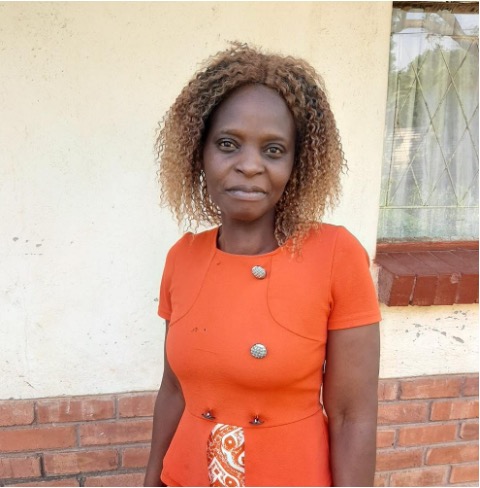By Rachel Riyano for We The Future!
“At first l thought life had brought me on my knees, it felt like I was all alone in this world but it turned out to be the opposite of what l thought about life,” said Sipiwe Mutamira.
The 39-year-old lady is a survivor of gender-based violence. Sipiwe and her husband have two children together and they stayed in Murambinda Bowera where the husband used to work in the mines. He was retrenched and moved to the city of Bulawayo in search of employment where his family later joined him.
“My husband had some money with him when we moved to Bulawayo and with that money, we opened an electrical gadgets shop and it ran smoothly for a while,” Sipiwe narrated.
As days went by, the husband would stay out late. At first, the wife thought he would have been caught up at work but it became more frequent, raising suspicion. At some point, she confronted him but he dismissed her concerns. Sipiwe later went through his phone and her suspicions were right. He was cheating.
“With time, he cared less for my kids and l. Whenever l asked for money to buy food or pay school fees for my eldest son he would hit me and hurl insults at me. Since we had a business, l thought l would get money to pay the fees but l was wrong, my husband had given full authority of the shop to the girlfriend’s sister. l knew nothing about these changes. l had nowhere to seek help from since l knew no one in Bulawayo,” said Sipiwe.
The shop fell into a crisis due to debt and poor management. They had to close it down. Her husband eloped to South Africa with his girlfriend, abandoning his family.
After the husband left, Sipiwe would wash clothes for people in order to get food for her kids and pay rent where she stayed. She saved little money which she used to buy tomatoes at a wholesale price – a popular business venture for the urban poor.
“I won’t lie, it was not easy selling tomatoes at first. l went door to door and not everyone had cash, some would take my stock on credit. Not always would l sell all the tomatoes daily, sometimes l would throw away some since they would have gone bad but l never gave up instead my spirit got boosted and it kept me going,” she said.
Sipiwe started saving again and she would go back to her rural home to buy groundnuts in bulk and she would sell the nuts at a cheaper price. With time, she sold them at wholesale price and she got a lot of customers and business was booming.
She bought herself a machine to process peanut butter which she sells. She opened a tuck shop where she stays in Sauerstown and she now rents the full house where she used to rent a room.
“I bought myself a housing stand and now my house is at roof level. By the end of this year, it will be complete. My eldest son finished his O’ Level and I’m planning on taking him to college. My last born is in Form Two at a private school. At my rural home l bought a field and that is where l get the groundnuts from. l have four cattle which are mine – dzinoti inini,” happily said Sipiwe.
This article was produced under CITE’s We The Future project. The We The Future project seeks to increase the participation of young women in local and national governance processes through capacity building on digital skills.

